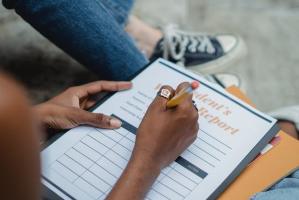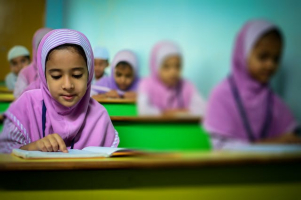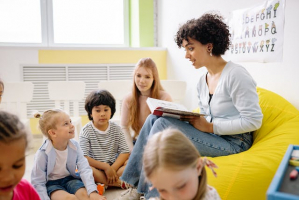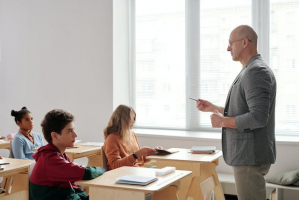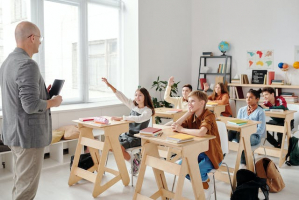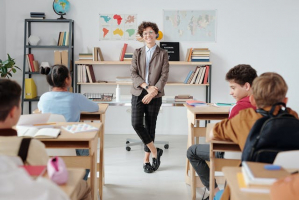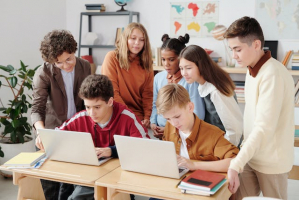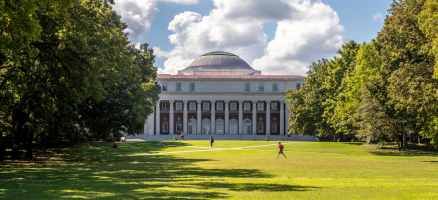Top 10 Common Questions about North Florida School of Special Education and Answers
Founded in 1992 by a group of visionary parents seeking advanced educational opportunities for their children with intellectual and developmental differences, ... read more...North Florida School of Special Education has flourished. for more than three decades. Below are interesting facts about North Florida School of Special Education.
-
Question: What is the philosophy or approach of the special education school?
Answer: The philosophy or approach of the North Florida School of Special Education (NFSSE) is to provide a supportive and innovative learning environment for students with intellectual and developmental differences. The school aims to help students aged 6-22 become the best versions of themselves through personalized education, vocational training, life skills development, and various therapeutic programs. NFSSE emphasizes individualized support and sets itself apart as the premier learning environment for individuals with intellectual and developmental differences in Northeast Florida.
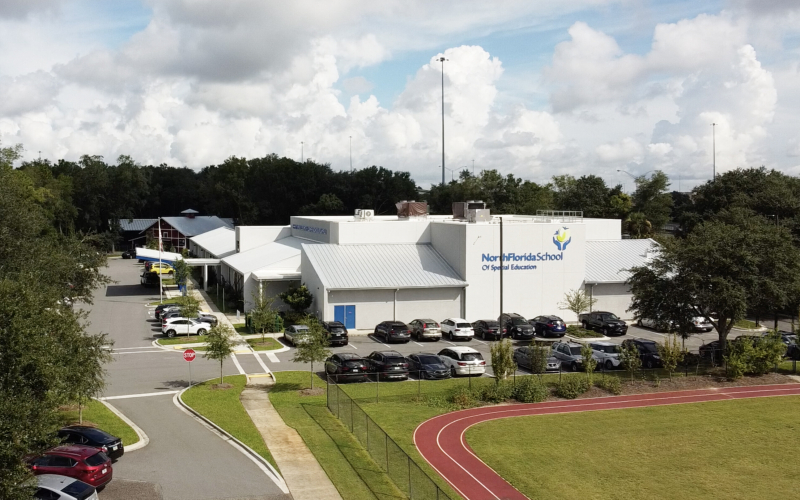
Screenshot via northfloridaschool.org 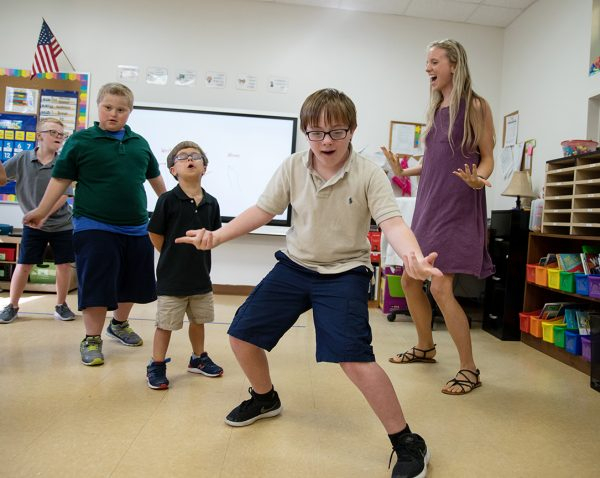
Screenshot via northfloridaschool.org -
Question: What types of disabilities or special needs does the school cater to?
Answer: The North Florida School of Special Education (NFSSE) caters to students with intellectual and developmental differences. These differences may encompass a variety of conditions, such as intellectual disabilities, autism spectrum disorders, Down syndrome, learning disabilities, and other developmental challenges. The inclusive language used suggests that the school is committed to providing support for a diverse range of special needs within the broader category of intellectual and developmental differences.
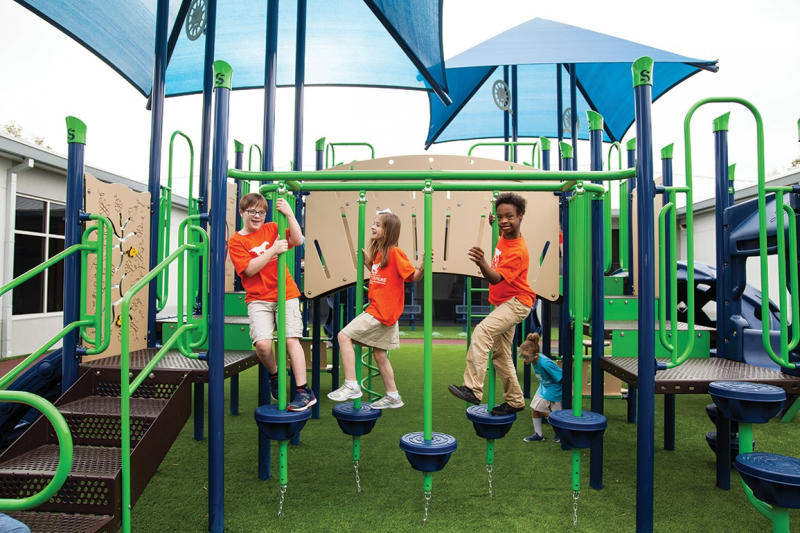
Screenshot via northfloridaschool.org 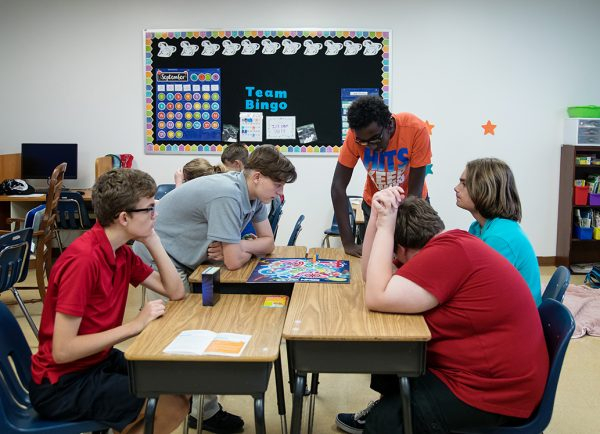
Screenshot via northfloridaschool.org -
Question: What is the student to teacher ratio?
Answer: The specific student to teacher ratio for the North Florida School of Special Education (NFSSE) is not explicitly mentioned in the provided information. However, it does mention that NFSSE adheres to a 1:6 Teacher to Student ratio. This suggests that the school prioritizes a low student-to-teacher ratio, allowing for more individualized attention and support for the students. It's worth noting that this ratio may vary depending on the specific classroom or program within the school. For the most accurate and up-to-date information, it is recommended to contact the school directly or refer to official school documentation.
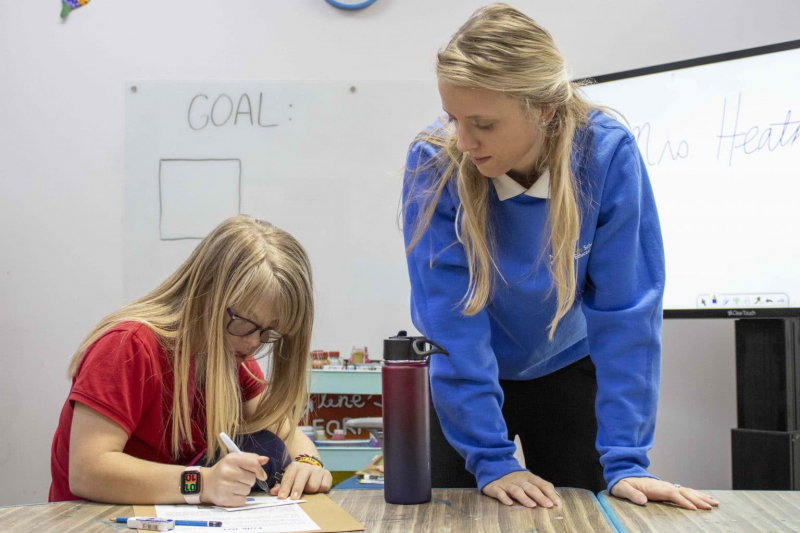
Screenshot via northfloridaschool.org 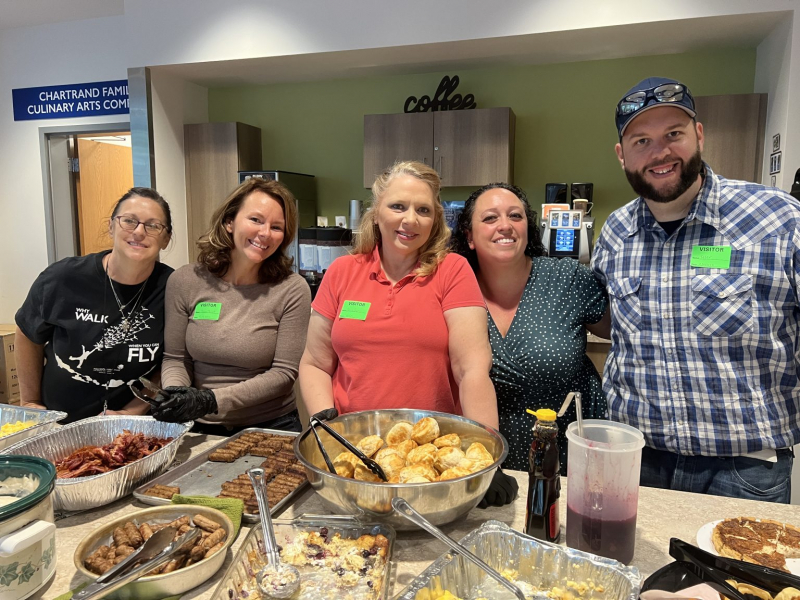
Screenshot via northfloridaschool.org -
Question: What support services are available for students with special needs?
Answer:
The North Florida School of Special Education (NFSSE) offers a robust set of support services designed to cater to the unique needs of students with intellectual and developmental differences. At the core of NFSSE's support system is an emphasis on individualized education plans. Recognizing the diverse paths to success, the school commits to a 1:6 Teacher to Student ratio, ensuring a personalized learning environment where students receive dedicated attention from educators.
For young adults aged 22-40, NFSSE's postgraduate programs extend support into vocational training, internships, and life skills development. This holistic approach aims to facilitate a smooth transition to adulthood, equipping students with practical skills for independent living.
Berry Good Farms, an integral part of NFSSE, serves as an urban farm promoting job training and healthy lifestyles through organic farming and culinary arts. This not only provides vocational opportunities but also underscores the school's commitment to a well-rounded and practical education.
Art with Soul is another avenue for students to explore and pursue their artistic talents. This program offers a creative space for budding and experienced artists, potentially opening doors to career paths in the visual arts.
The Delores Barr Weaver Therapeutic Equestrian Center further amplifies NFSSE's commitment to therapeutic services. Beyond catering to NFSSE students, the center serves children and adults with intellectual and developmental differences throughout Northeast Florida, providing equine therapy as a unique and beneficial form of support.
In essence, NFSSE's support services span academic, vocational, artistic, and therapeutic dimensions, creating a comprehensive and nurturing environment where students with special needs can flourish and reach their full potential.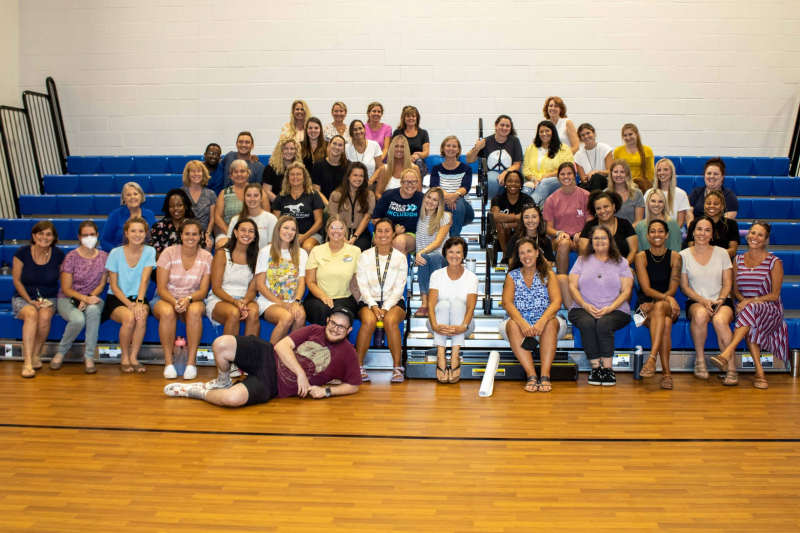
Screenshot via northfloridaschool.org 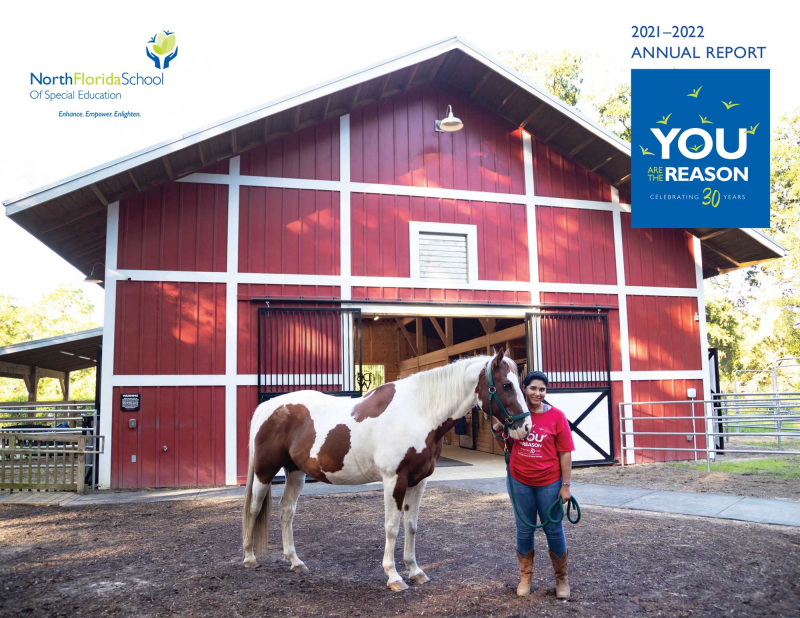
Screenshot via northfloridaschool.org -
Question: What is the level of training and experience of the teaching staff?
Answer:
While the specific details about the level of training and experience of the teaching staff at the North Florida School of Special Education (NFSSE) are not provided in the available information, the commitment to a comprehensive, individualized education plan for each student suggests a dedicated and qualified teaching staff.
In special education settings, teachers typically possess specialized training to address the diverse needs of students with intellectual and developmental differences. They often undergo continuous professional development to stay updated on best practices and innovative approaches in the field of special education.
The emphasis on a 1:6 Teacher to Student ratio further suggests a commitment to providing individualized attention and support. This ratio allows teachers to tailor their approaches to the unique learning styles and requirements of each student.
To obtain specific details about the qualifications, training, and experience of the teaching staff, it is recommended to contact the school directly. School websites, informational brochures, or communication with the school administration are common avenues to gather more in-depth information about the teaching staff's credentials.
In special education environments like NFSSE, where the focus is on meeting the unique needs of students with intellectual and developmental differences, one can anticipate that the teaching staff would have a combination of relevant academic qualifications, specialized training, and practical experience to provide effective and supportive education.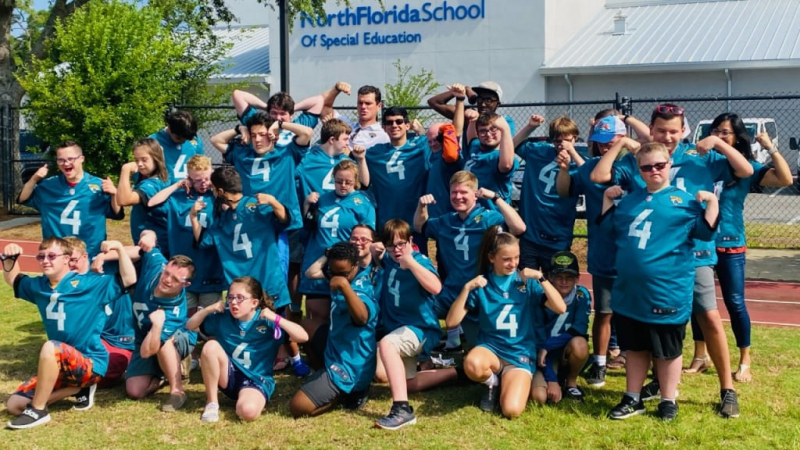
Screenshot via northfloridaschool.org 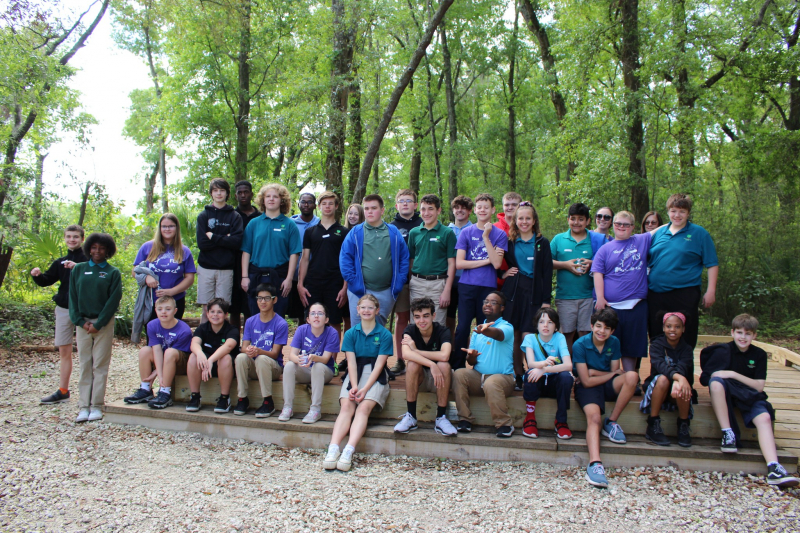
Screenshot via northfloridaschool.org -
Question: How does the school individualize education plans for students?
Answer:
The North Florida School of Special Education (NFSSE) is dedicated to providing individualized education plans (IEPs) for each student, recognizing the diverse needs and learning styles of students with intellectual and developmental differences.
The process of individualizing education plans typically involves a collaborative effort among educators, support staff, and, where applicable, parents or guardians. Here are some general strategies that special education schools, including NFSSE, may employ to individualize education plans:
Assessment and Evaluation:- Conducting thorough assessments to understand each student's strengths, challenges, and unique learning profile.
- Utilizing a variety of assessment tools to gather information on academic abilities, social skills, communication skills, and any specific needs or accommodations required.
Setting Individual Goals:
- Collaboratively setting specific, measurable, achievable, relevant, and time-bound (SMART) goals for each student based on their individual needs and abilities.
Tailoring Instructional Methods:
- Adapting teaching methods and instructional materials to suit the individual learning styles of students.
- Implementing varied teaching strategies to address different modalities such as visual, auditory, and kinesthetic learning.
Providing Support Services:
- Offering additional support services, such as one-on-one tutoring, speech therapy, occupational therapy, and counseling, as needed.
Monitoring and Adjusting:
- Regularly monitoring students' progress toward their goals
- Adjusting and modifying the education plan based on ongoing assessments and feedback
Incorporating Life Skills and Vocational Training:
- For older students, integrating life skills training and vocational education into the curriculum to prepare them for independence and potential employment
Parent and Guardian Involvement:
- Involving parents or guardians in the development and review of the education plan to ensure alignment with the student's overall needs and goals.
By employing these strategies, NFSSE aims to create a tailored and supportive educational environment that recognizes and addresses the unique needs of each student, fostering their academic, vocational, and social development.
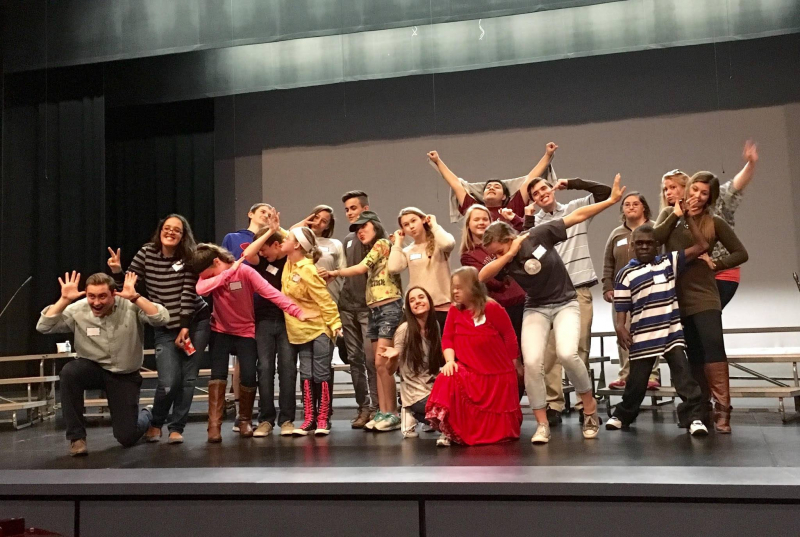
Screenshot via northfloridaschool.org 
Screenshot via northfloridaschool.org -
Question: What extracurricular activities or support networks are available for students?
Answer:
The North Florida School of Special Education (NFSSE) provides a well-rounded experience for its students, offering various extracurricular activities and support networks to enhance their overall development. While specific details about extracurricular activities are not explicitly outlined, the school's commitment to fostering a holistic learning environment suggests a range of opportunities for students. Potential extracurricular activities and support networks may include:
Art with Soul: NFSSE's Art with Soul program offers a creative outlet for budding and experienced artists. Engaging in artistic activities can promote self-expression, creativity, and potentially open avenues for future career paths in the visual arts.
Berry Good Farms: The urban farm, Berry Good Farms, not only serves as a vocational training ground but may also provide opportunities for students to engage in extracurricular activities related to organic farming and culinary arts.
Therapeutic Equestrian Center: The Delores Barr Weaver Therapeutic Equestrian Center, anchored on the campus, may offer equine therapy and related activities. Such therapeutic programs can contribute to students' physical, emotional, and cognitive well-being.
Life Skills and Vocational Programs: For postgraduate students, the vocational training and life skills programs can serve as practical extracurricular experiences, preparing them for independent living and potential employment.
Community Engagement: NFSSE's commitment to community engagement, as indicated by the Director of Community Engagement, suggests that students may have opportunities to participate in community-based activities and projects.
Social Events and Activities: The Director of Family and Student Activities, Stacy Santiago, may organize social events and activities to foster a sense of community among students and their families.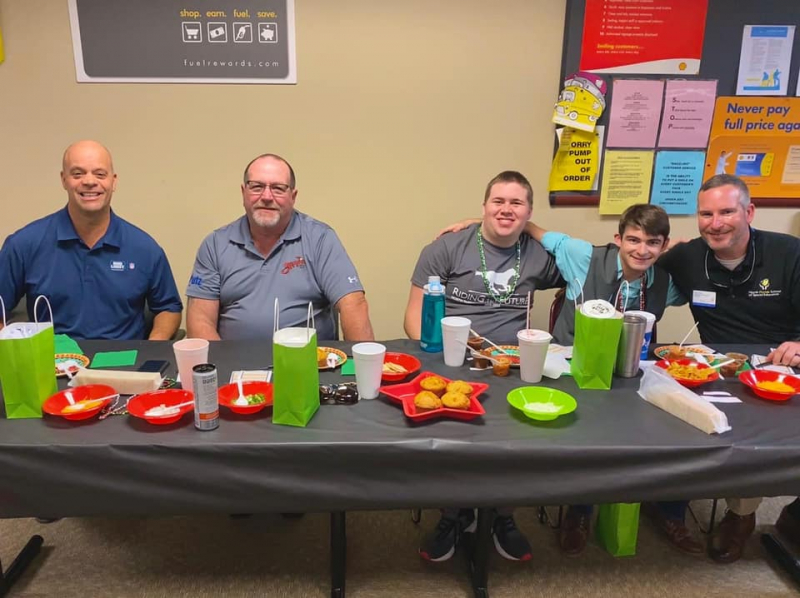
Screenshot via northfloridaschool.org 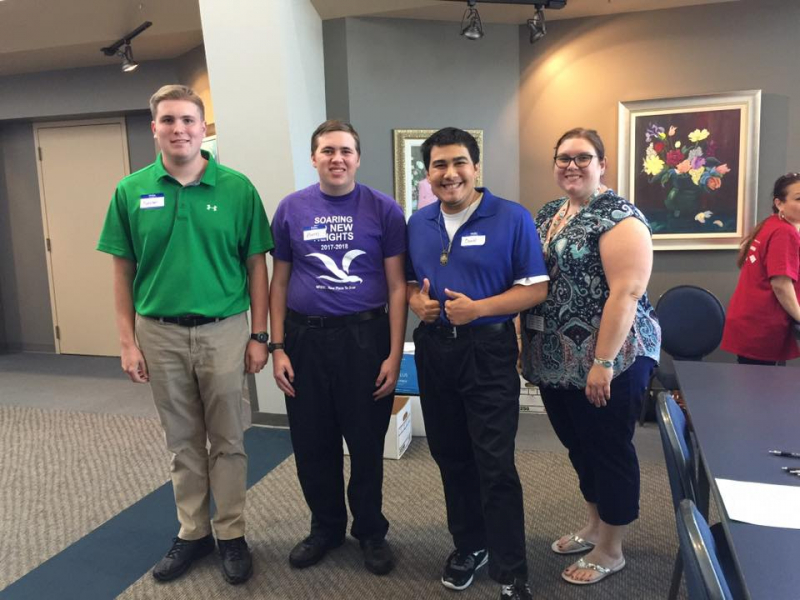
Screenshot via northfloridaschool.org -
Question: How does the school communicate with parents and involve them in the education process?
Answer:
While specific details about the communication strategies with parents are not provided, the North Florida School of Special Education (NFSSE) likely employs various methods to keep parents informed and involved in the education process. Here are common practices that schools, including special education institutions, often use to communicate with parents:
Regular Parent-Teacher Conferences: Scheduled conferences where parents meet with teachers to discuss their child's progress, academic performance, and any concerns or goals.
Newsletters and Announcements: Regular newsletters or announcements sharing important updates, upcoming events, and showcasing student achievements. These may be distributed electronically or in print.
Parent Information Sessions: Hosted sessions or workshops to provide parents with information about school policies, curriculum, and strategies to support their child's learning at home.
Individualized Education Plan (IEP) Meetings: Collaborative meetings to discuss and review the student's IEP, ensuring alignment with the child's needs and goals. These meetings provide an opportunity for open communication between parents and educators.
Online Portals and Platforms: Utilizing online platforms or portals where parents can access real-time information about their child's assignments, grades, and overall school activities.
Parent Teacher Associations (PTA) or Organizations: Involving parents in school activities through PTA meetings or parent organizations, fostering a sense of community and collaboration.
Direct Communication Channels: Providing contact information for teachers, administrators, or staff members, allowing parents to communicate directly with the school when needed.
Events and Celebrations: Hosting events, celebrations, or performances where parents are invited to witness their child's achievements and participate in the school community.
The involvement of a Director of Family and Student Activities, as mentioned in the information, suggests a focus on engaging families in various school-related activities.
For specific details on how NFSSE communicates with parents and involves them in the education process, it is recommended to contact the school directly or review any available documentation, such as parent handbooks or communication policies.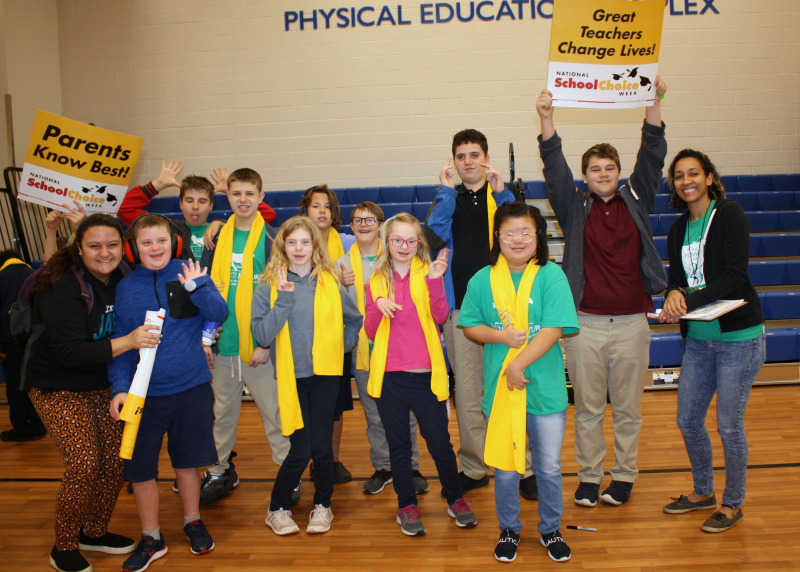
Screenshot via northfloridaschool.org 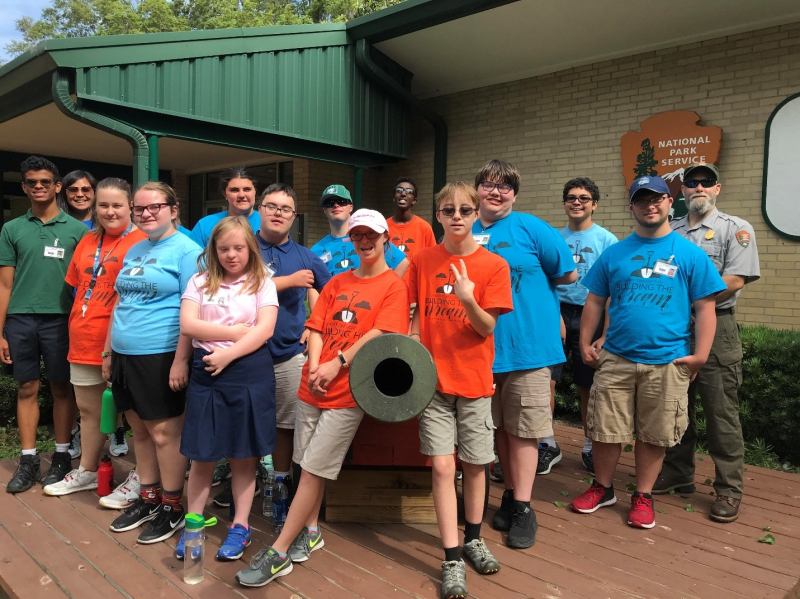
Screenshot via northfloridaschool.org -
Question: What is the school's track record in transitioning students to further education or employment?
Answer:
The specific track record of the North Florida School of Special Education (NFSSE) in transitioning students to further education or employment is not provided in the available information. However, the emphasis on postgraduate programs for young adults aged 22-40 suggests a commitment to supporting students in their transition to adulthood, which may include pathways to further education and employment.
To gather specific information about NFSSE's track record in student transitions, including outcomes related to further education and employment, it is recommended to contact the school directly. School administrators or the Director of Transition and Postgraduates may be able to provide detailed information about the success stories, employment placements, and educational achievements of past graduates.
Typically, schools with a strong transition program focus on equipping students with the necessary skills for independence, vocational training, and successful integration into the community. They may have partnerships with local businesses or educational institutions to facilitate opportunities for students beyond their time at the school.
Additionally, exploring testimonials or success stories from alumni and their families, if available, can provide insights into the school's effectiveness in preparing students for the next stages of their lives.
For the most accurate and up-to-date information on NFSSE's track record in transitioning students to further education or employment, reaching out to the school directly is recommended.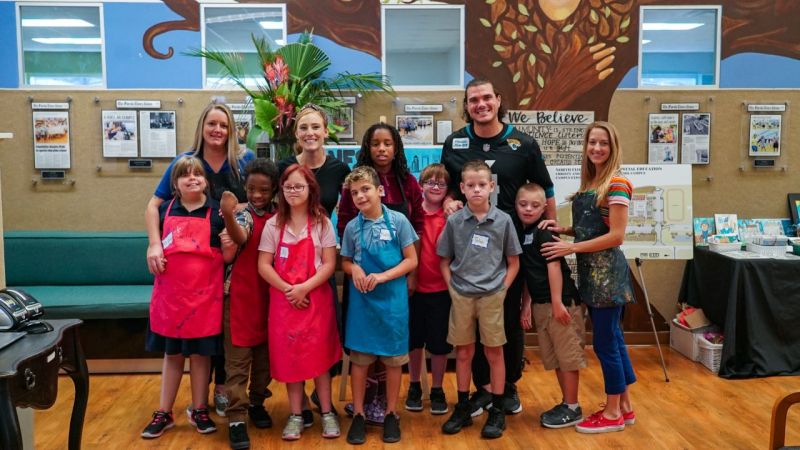
Screenshot via northfloridaschool.org 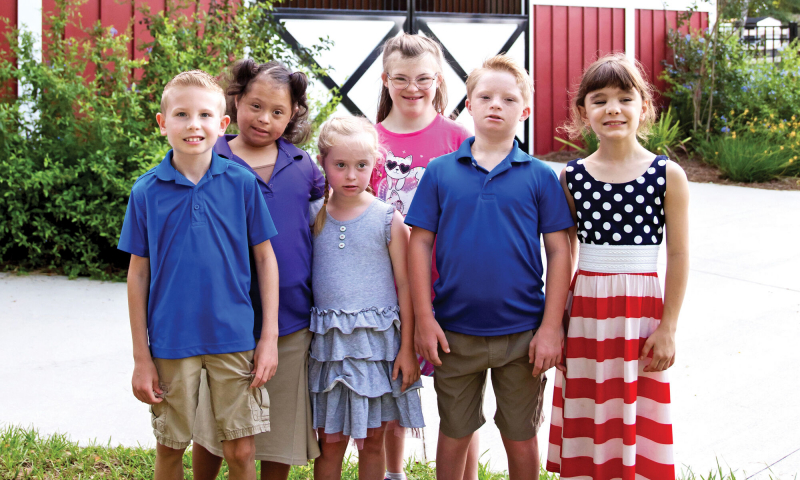
Screenshot via northfloridaschool.org -
Question: What resources and accommodations are in place to create an inclusive learning environment?
Answer:
While specific details about resources and accommodations for creating an inclusive learning environment at the North Florida School of Special Education (NFSSE) are not explicitly outlined, special education schools commonly employ a variety of strategies. In an inclusive learning environment, the focus is on meeting the diverse needs of students with intellectual and developmental differences. Here are general practices that schools, including NFSSE, may implement:
Individualized Education Plans (IEPs): Developing personalized IEPs for each student to address their specific learning needs, goals, and accommodations.
Low Student-to-Teacher Ratio: Maintaining a low student-to-teacher ratio, as mentioned (1:6 Teacher to Student ratio), to ensure individualized attention and support.
Specialized Instructional Methods: Adapting teaching methods to accommodate diverse learning styles, incorporating visual aids, hands-on activities, and other strategies to enhance understanding.
Therapeutic Services: Providing therapeutic services such as speech therapy, occupational therapy, and equine therapy to address both academic and non-academic needs.
Assistive Technology: Integrating assistive technologies and tools to support students with specific challenges, such as reading aids, communication devices, or sensory tools.
Life Skills and Vocational Training: Offering life skills and vocational training programs to prepare students for practical aspects of daily living and potential future employment.
Community Engagement: Fostering a sense of community and inclusion through activities that involve students in the broader community, promoting social skills and interaction.
Professional Development: Providing ongoing professional development for teachers and staff to stay informed about the latest best practices and advancements in special education.
Accessibility Features: Ensuring physical accessibility with features like ramps, elevators, and other accommodations to facilitate movement within the school premises.
Collaboration with Families: Collaborating closely with parents and guardians to understand the unique needs of each student and involving them in the decision-making process.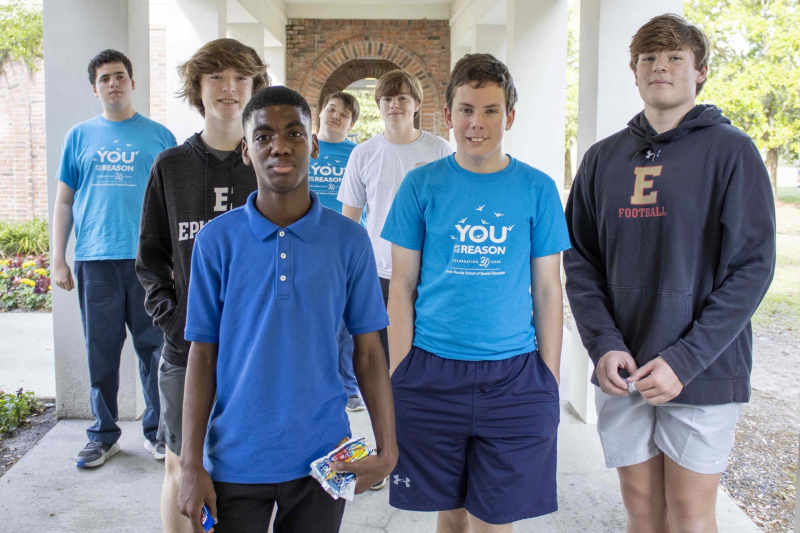
Screenshot via northfloridaschool.org 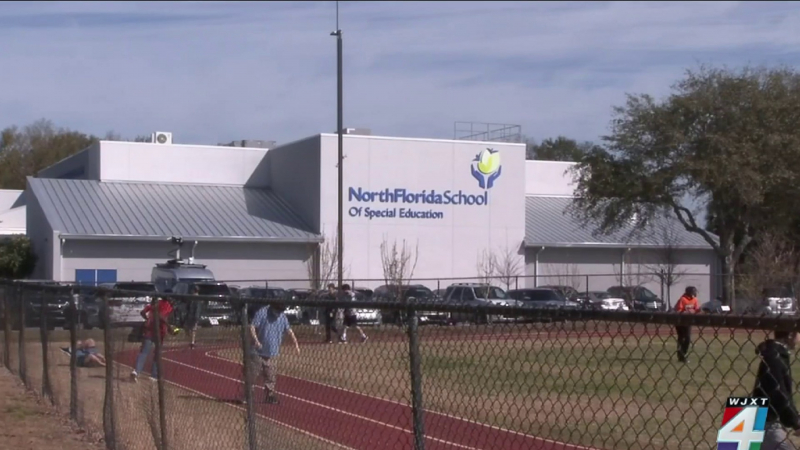
Screenshot via northfloridaschool.org












